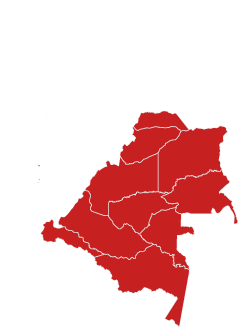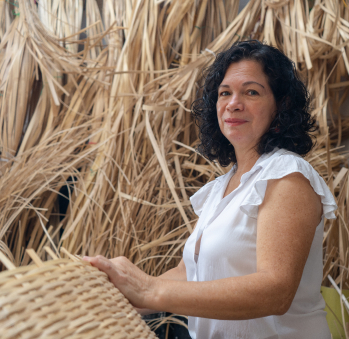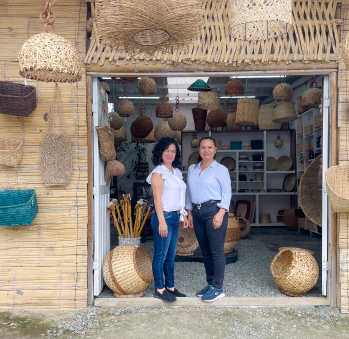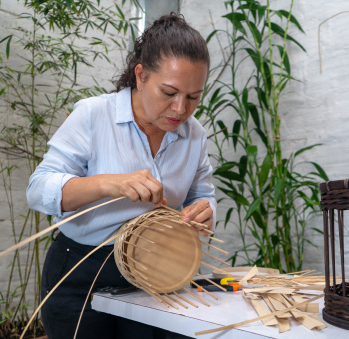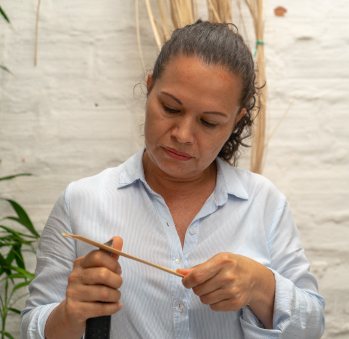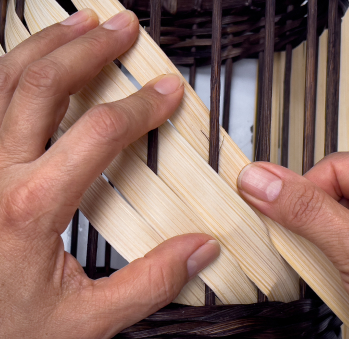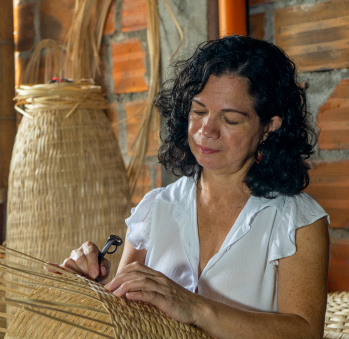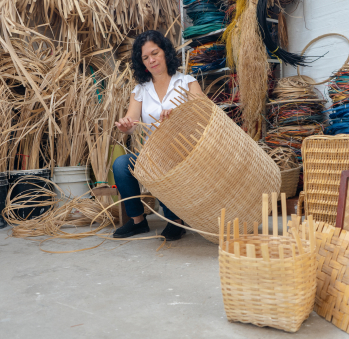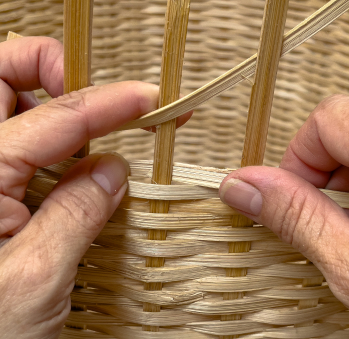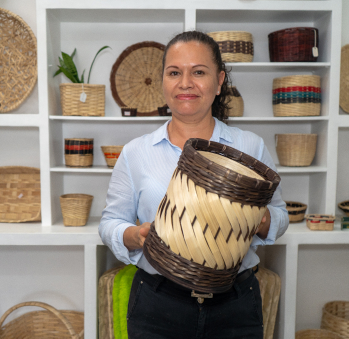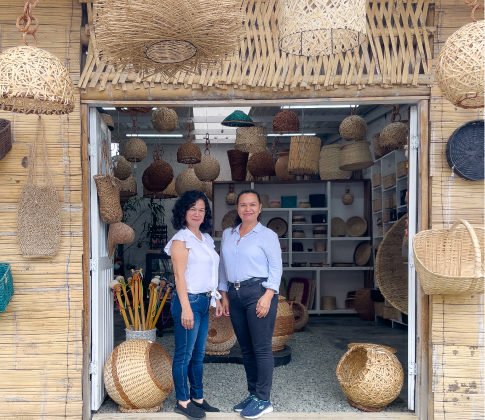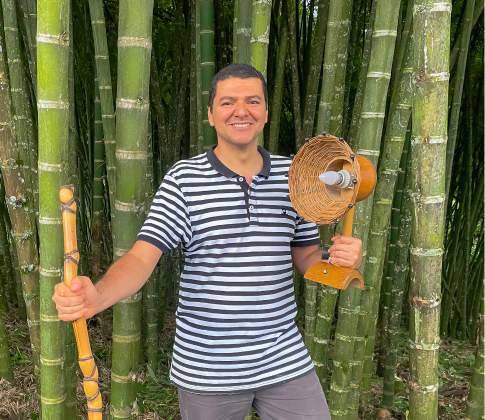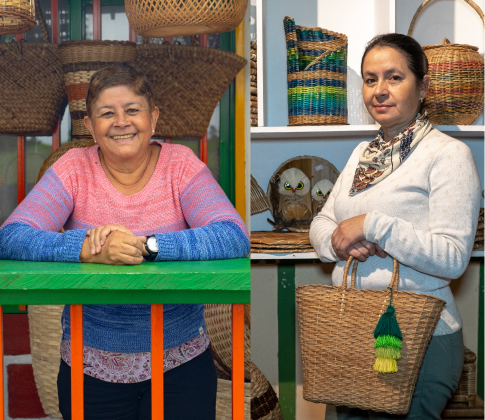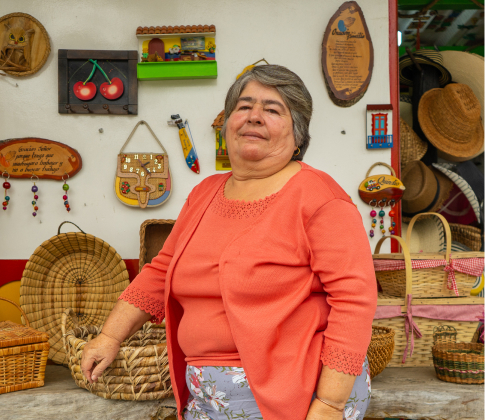Zoraida, John Fredy y Edelmira Collazos
Workshop: Quimbayas Productos Artesanales
Craft: Basketmaking
Trail: Risaralda-Quindío Route
Location: Quimbaya, Eje Cafetero
This family arrived in Quimbaya in 1974. The Collazos sisters —whose father was from Valle del Cauca and whose mother was from Pereira— clearly remember their arrival in town because they were dazzled by its landscape: it was full of craftspeople. Although Primitivo, their father, was a farmer and came to Quimbaya to trade plantain and grow tobacco, he quickly realized that crafts were a path he could take to provide for his eight children.
He learned how to weave guadua baskets easily and began to involve the entire family in the manufacturing process. Today, Zoraida, Edelmira, and John Fredy are the three siblings who preserve the Collazos tradition. They have even passed it on to their children, nieces and nephews. Although they have been in the business for more than 40 years, they remember their childhood as if it were yesterday.
They remember going with their father to guadua plantations to harvest 15-meter-long stems, drying them under sun, and making sure cows did not step on them. They would weave nonstop from 7 a.m. until late in the afternoon. They can almost taste the coffee and herbal tea that their mother, Rosa Aleida, brought them during the only break they had in the entire day.
Zoraida talks about how she learned to weave by watching and picking up bits of leftover guadua. She describes how, in 1985, she helped carry out a craftspeople census in Quimbaya, which reported 75 families working in basketry. Edelmira smiles when revealing that she developed her weaving skills disassembling every toy she was able to get ahold of. She recalls that, when she was 12, she confronted her father and demanded that he pay her and her siblings for the work they did. He ended doing exactly as she told him to.
At that time, they had to weave constantly to produce the household’s weekly quota. They also practiced new techniques that they learned of when they were not working. They did this in the innovation laboratories that Primitivo considered to be useless. These labs allowed the kids to discover ideas, designs and processes such as cross weaving, mixing fibers and ceramics, and expanding the range of products to include cradles, trunks and chests of all kinds, aside from the traditional baskets.
Each of the siblings acknowledges the qualities of one another. They say that John Fredy is better at more rustic wares, that Edelmira is the fastest craftswoman and is an expert at dyeing, and that Zoraida does the finest weaving. They all complement each other. They are grateful for María José, John Fredy’s daughter, because she inherited the trade and is currently carrying on the family tradition.
Craft
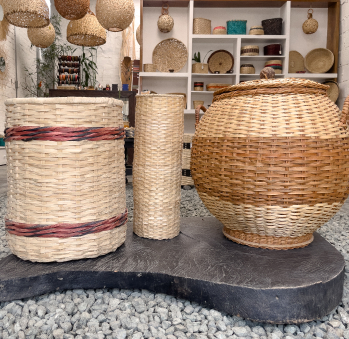
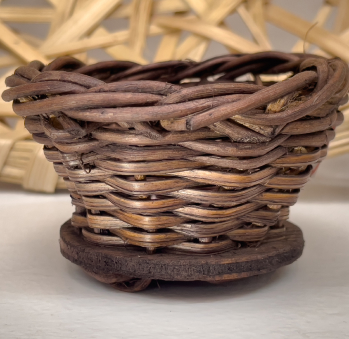
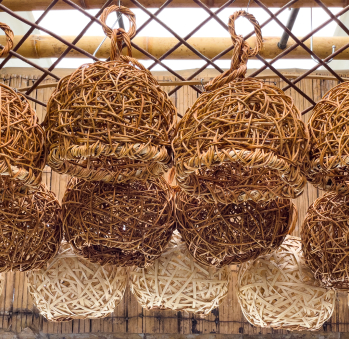
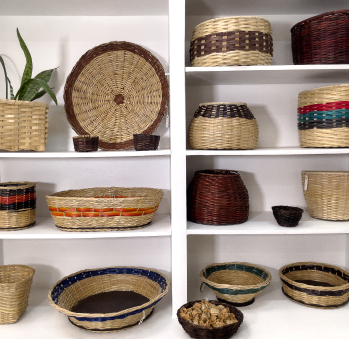
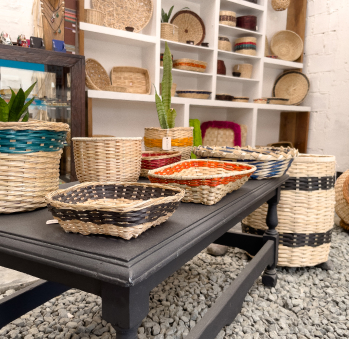
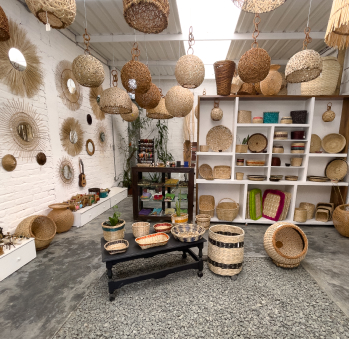
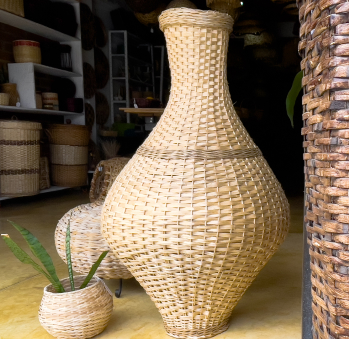







Artisans along the way
Artisans along the way
No puede copiar contenido de esta página

